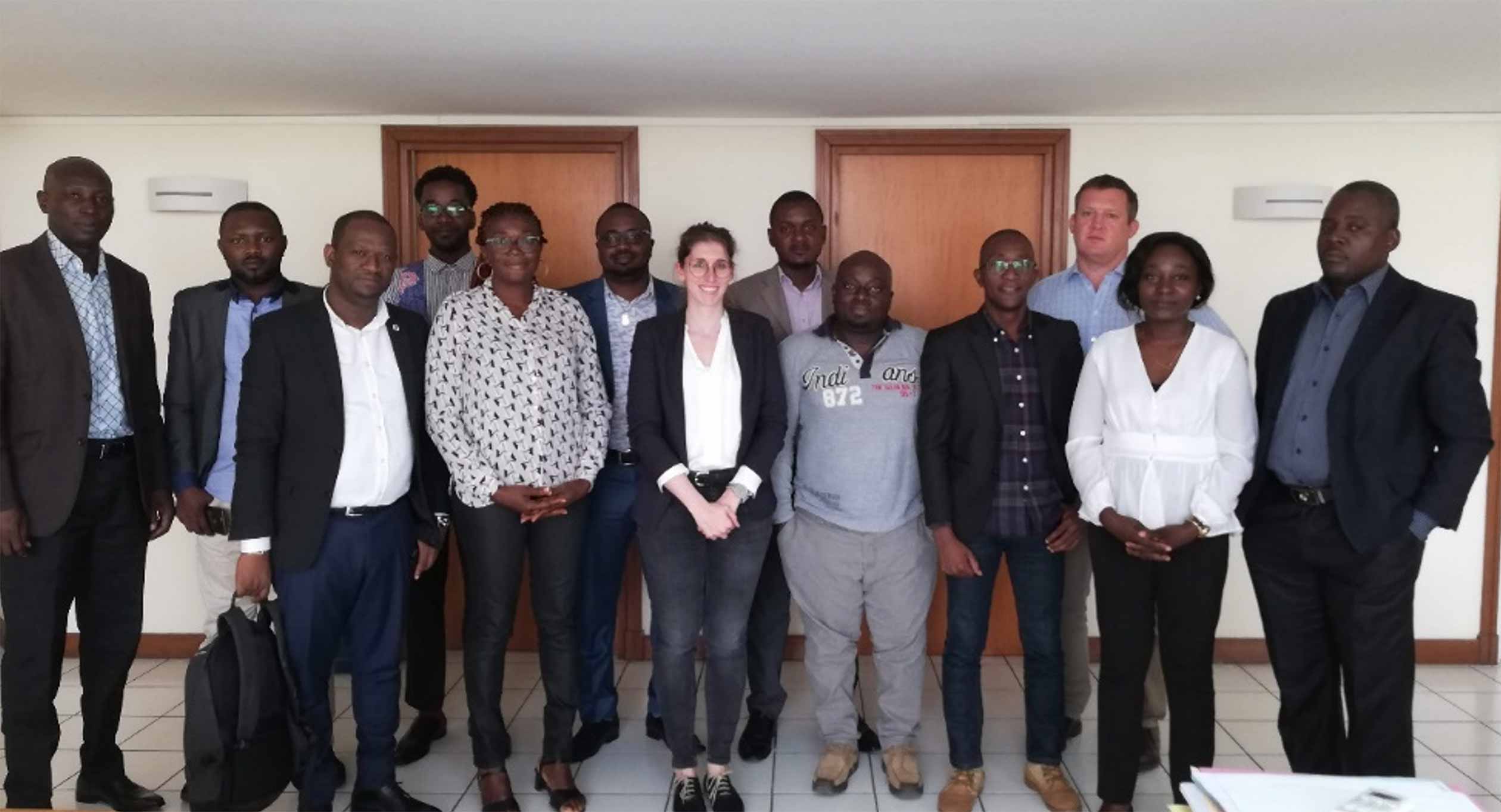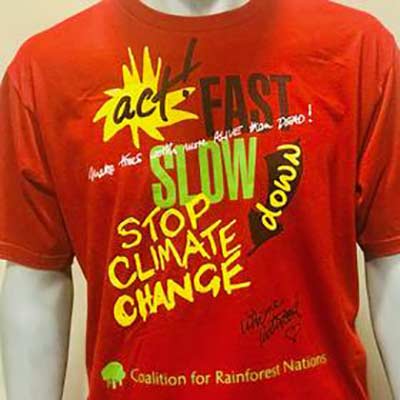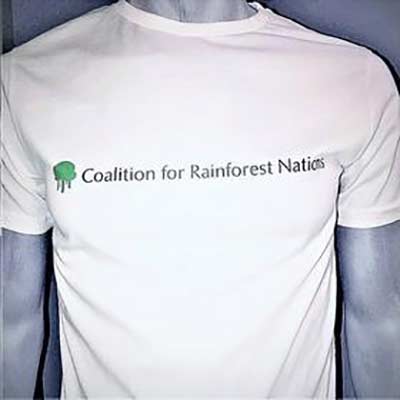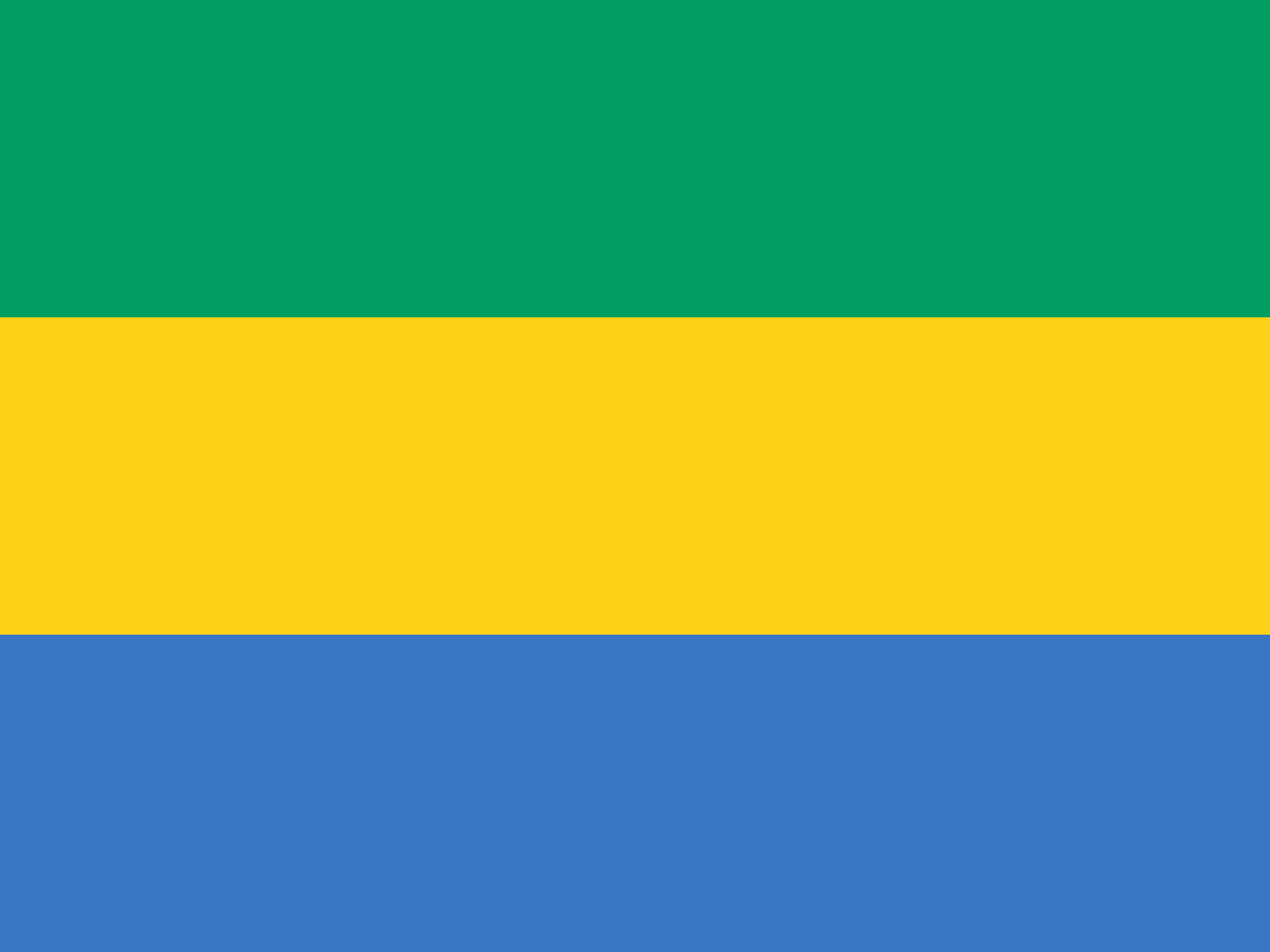
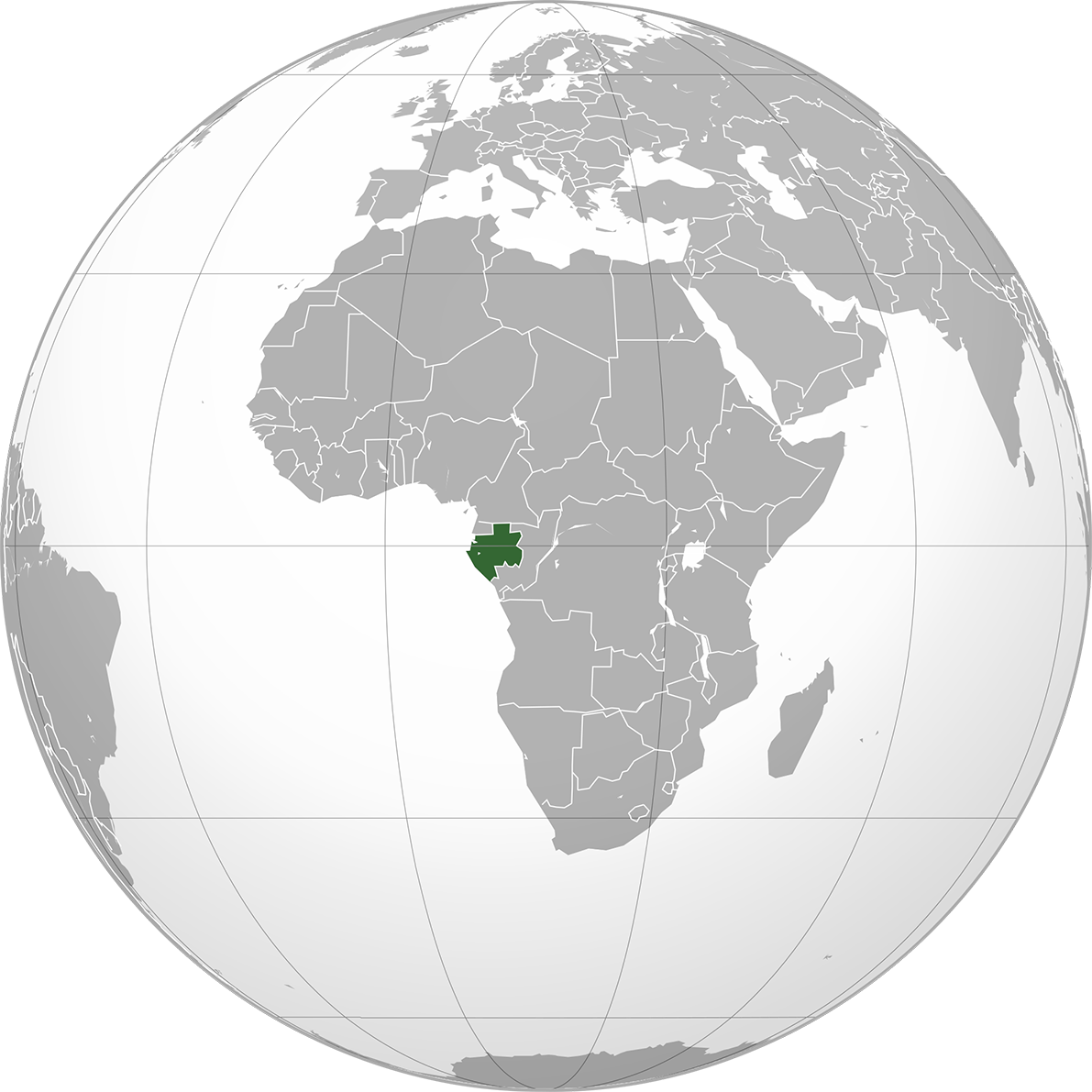
Gabon
Gabon, a nation of two million people that occupies a territory the size of Colorado, is a member of the Coalition for Rainforest Nations. Located on the west coast of Central Africa, Gabon is a net absorber of greenhouse gasses. Its rainforests are part of the Congo Basin rainforest – one of the last five remaining mega forests on Earth. As a result of its forest preservation actions, Gabon will soon issue 90 million ‘sovereign’ carbon credits under the REDD+ mechanism – the largest carbon credit issuance to date.
Country Statistics
Background
Gabon’s economy currently depends on oil revenues. The country is looking to diversify to a more sustainable economy. Thanks to Gabon’s rainforests and some of the world’s tallest mangrove forests, the country has removed roughly 1 billion tons of net CO2e from the atmosphere over the past decade. Gabon’s rainforest is part of the much larger Congo Basin rainforest, which extends into Cameroon, the Central African Republic, Democratic Republic of the Congo, Republic of the Congo, and Equatorial Guinea. This rainforest plays a crucial role in regulating rainfall across the African continent, a benefit that, if lost, could cause massive suffering for the Nile Delta’s 400m-and-growing population.
Gabon itself is richly forested, considered High Forest Low Deforestation (HFLD) with 88% forest cover, the second highest after Suriname. Gabon’s forests store high levels of carbon, and harbor exceptional biodiversity. They provide resources and livelihoods for rural populations and regulate rainfall. They serve as the “earth’s lungs,” absorbing carbon and mitigating climate change at the national, regional, and global scale. Thanks to strong government action implemented at national scale, many of the traditional drivers of deforestation, such as illegal logging, have been eliminated in Gabon.
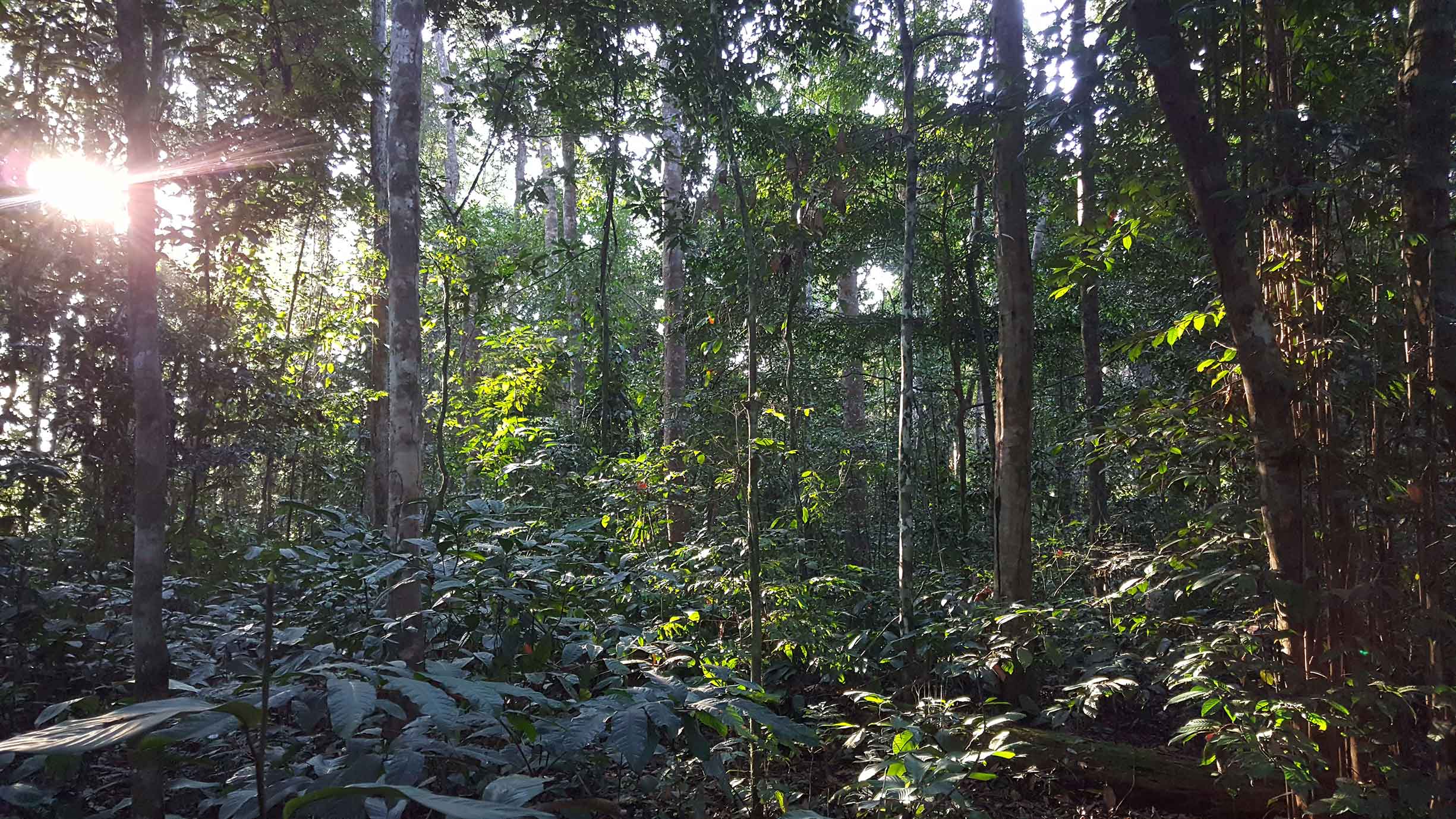
Sunshine through the trees at Loango National Park in Gabon
Government Action
The Government of Gabon has demonstrated strong leadership and action to protect its forests. Gabon’s government committed to the Paris Agreement and moved to reduce emissions and conserve its forest principally through three key national policies: its Sustainable Forestry Management law (2005); the creation of 3 million hectares of national parks; and a ban on raw timber exports. All its forests are either protected areas, managed production forests, or community lands, which its Forestry Ministry manages.
A Sustainable Timber Industry Creates Jobs
Lee White, Gabon’s Minister of Water, Forests, Sea, and Environment sees forest preservation as “almost a moral responsibility and a matter of national security.” Monetizing sovereign carbon credits can help Gabon transition to a more sustainable economy and provide jobs for its people.
And its sustainable timber industry is its fulcrum for job creation. Lee White underscores its importance for the future of the country, half of whose population is under the age of twenty as of 2022.
According to Gabon’s updated Nationally Determined Contribution (NDC), or Paris Agreement decarbonization pledge, by processing timber locally, contribution to the national economy will be multiplied ten-fold. Sustainable timber harvesting can create ten times more jobs, with the number of jobs rising from 30,000 to 300,000 by 2030. By supplementing timber production from natural forests through afforestation (planting more trees), and carbon positive plantations in savanna areas, the country could transform its timber industry from $1 billion to $10 billion per year, all the while securing the carbon sink through forest management and controlled land use. This job creation from sustainable forestry is part of Minister White’s plan to combat Gabon’s high unemployment rate, which runs 20% on average, and steeper still among the young.
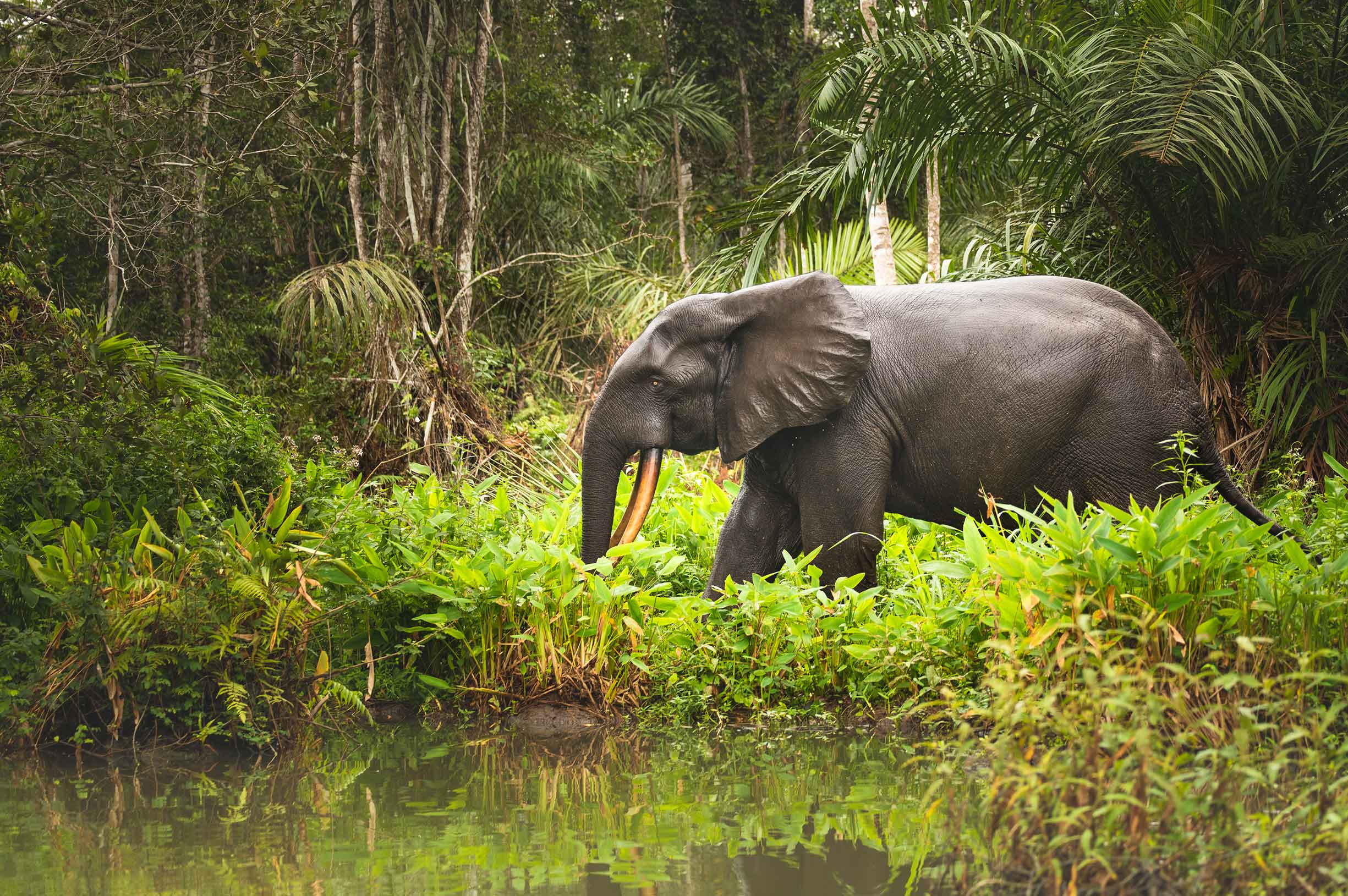
African forest elephant grazing in the dense forest in Gabon at Loango National Park
Biodiversity and Species
Within its rainforests, Gabon harbors an immense amount of biodiversity. It was named Earth’s last Eden by National Geographic. Gabon boasts three quarters of the world’s remaining forest elephants; large populations of endangered chimpanzees and gorillas; and 21 primate species, including two unique to Gabon: the sun-tailed guenon and DuChaillu’s galago. Gabon’s trove of biodiversity also includes bongos; sitatungas; leopards; forest buffalo; forest duikers; three species of crocodiles; and the world’s biggest nesting populations of leatherback and olive ridley sea turtles.
A Stronghold for the African Forest Elephant
Biodiversity has increased, thanks to Gabon’s action to save its forests. One example is the African forest elephant (Loxodonta cyclotis), whose smaller bodies and straighter tusks are better adapted to moving through the woods than their non-forest relatives (L. Africana). The African Forest Elephant is IUCN Red-listed as endangered in Central Africa. Hunted principally for its ivory tusks, approximately one elephant is slaughtered every 15 minutes. Gabon has become a stronghold for these beasts, who play a crucial role in seed dispersal throughout the rainforest. Currently, about seventy-five percent of the world’s remaining forest elephants live within Gabon’s borders. Due to the large tracts of continuous forest and a concerted war on poachers waged by Gabon’s National Parks Agency, Gabon’s forest elephant population has risen from 60,000 to 95,000 during the reference period of its forest preservation.
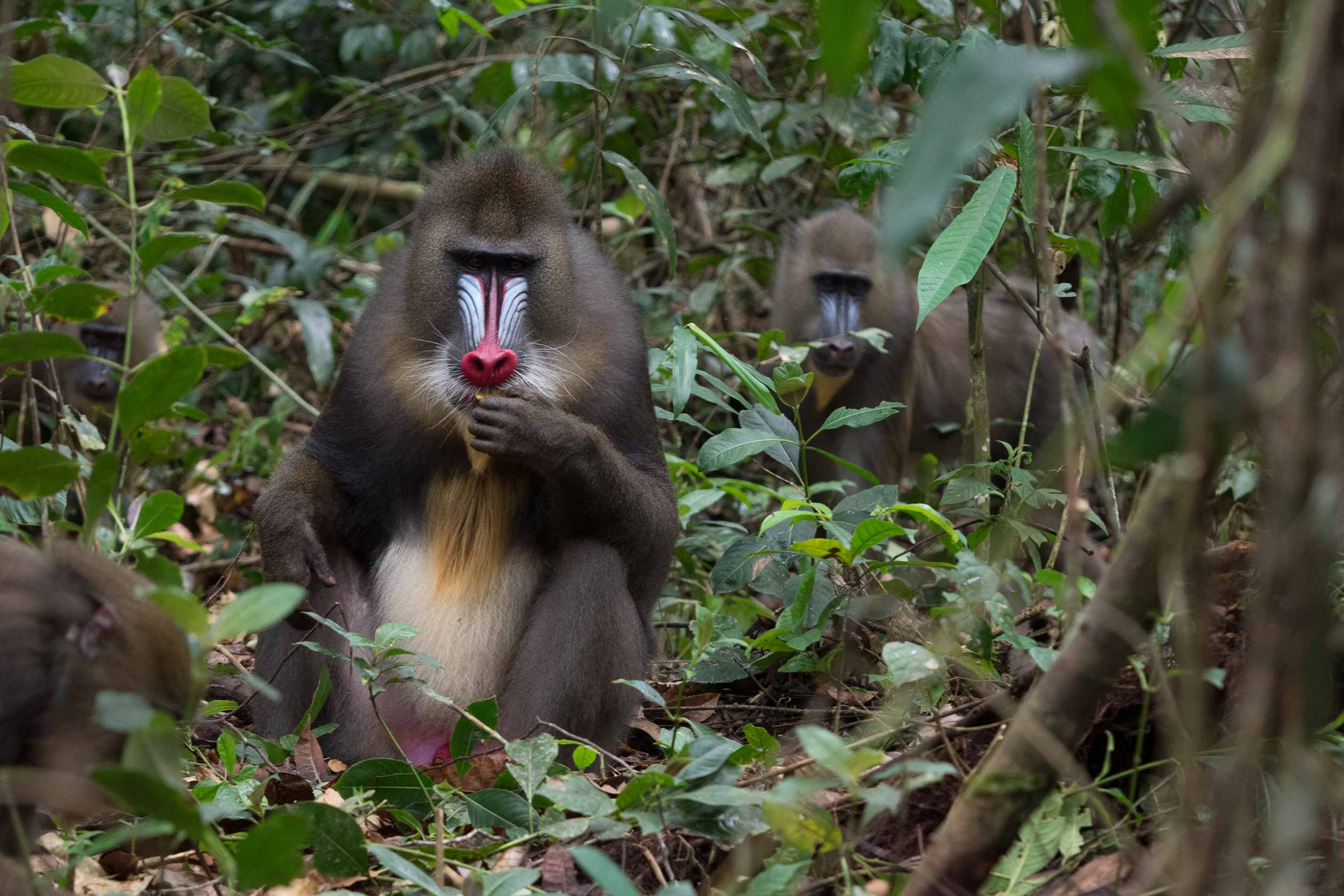
Mandrill gabon
Country Statistics
Our Work
The Coalition for Rainforest Nations has partnered with Gabon on its journey to end deforestation, supporting Gabon’s participation in the UN’s Reducing Emissions from Deforestation and Forest Degradation (REDD+) mechanism. CfRN’s experts have assisted Gabon through in-country human capital building to prepare greenhouse gas inventories and report the results of its emissions reductions and removals from its rainforests to the UNFCCC.
These actions have borne fruit. Lee White, Gabon’s Minister of Water, Forests, Sea, and Environment has announced that Gabon will come to market with an offering of 90 million tons of sovereign carbon credits, based on the 90 million tons of emissions reductions achieved under the REDD+ mechanism. This will be the largest issue of carbon credits, to date.
Under REDD+, sovereign governments decide how proceeds from sales of forest credits will be used. Gabon’s credits are earmarked for investments in forest communities and in public health and education as well as for paydown of the national debt. CfRN salutes Gabon for its actions and for showing the way forward for other CfRN member countries, on rainforest conservation. Through the issuance of REDD+ sovereign credits, Gabon and other CfRN member countries are helping to make forests worth more standing than felled.
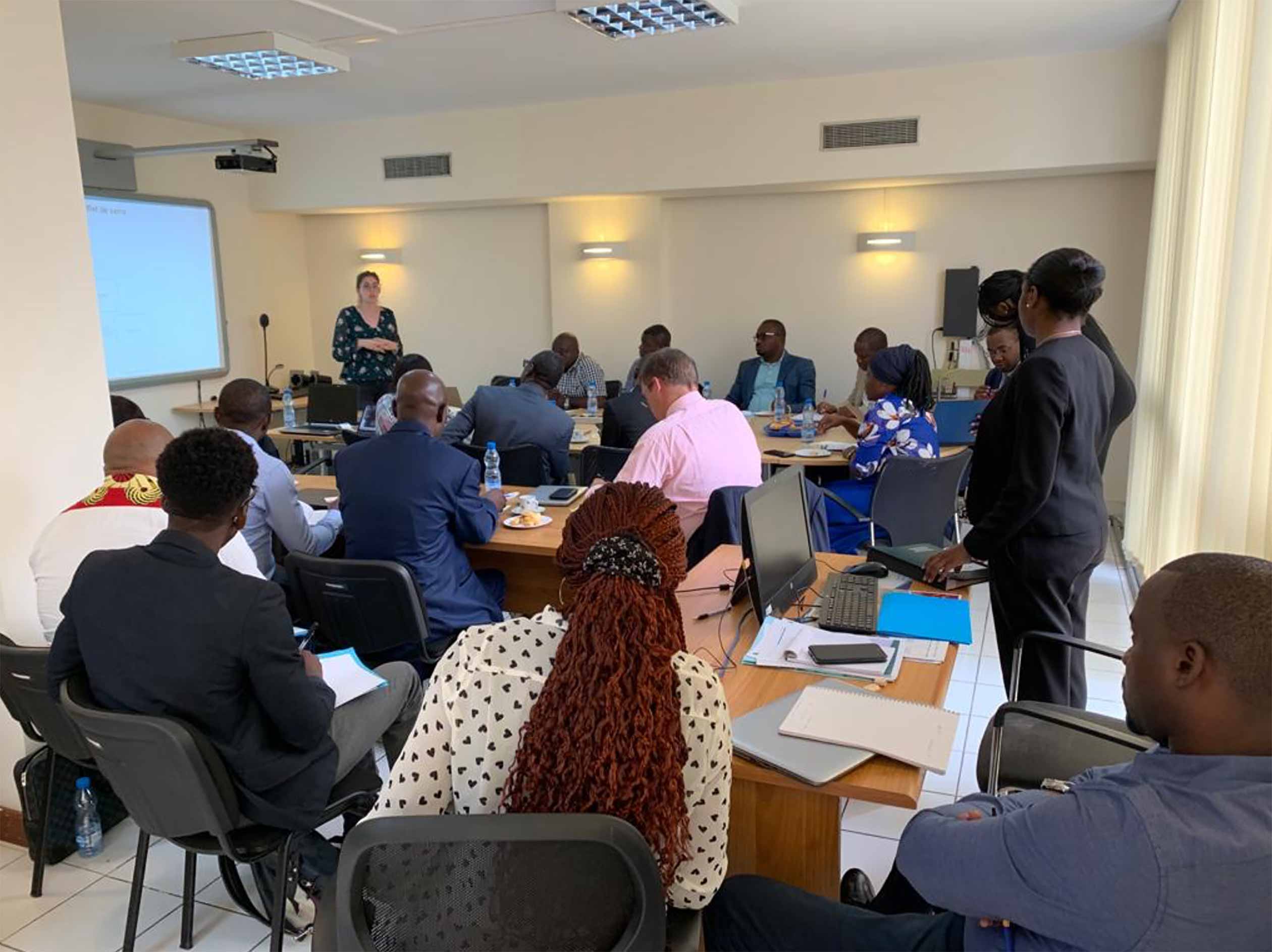
Participants in the CfRN training session at the National Climate Council in Libreville
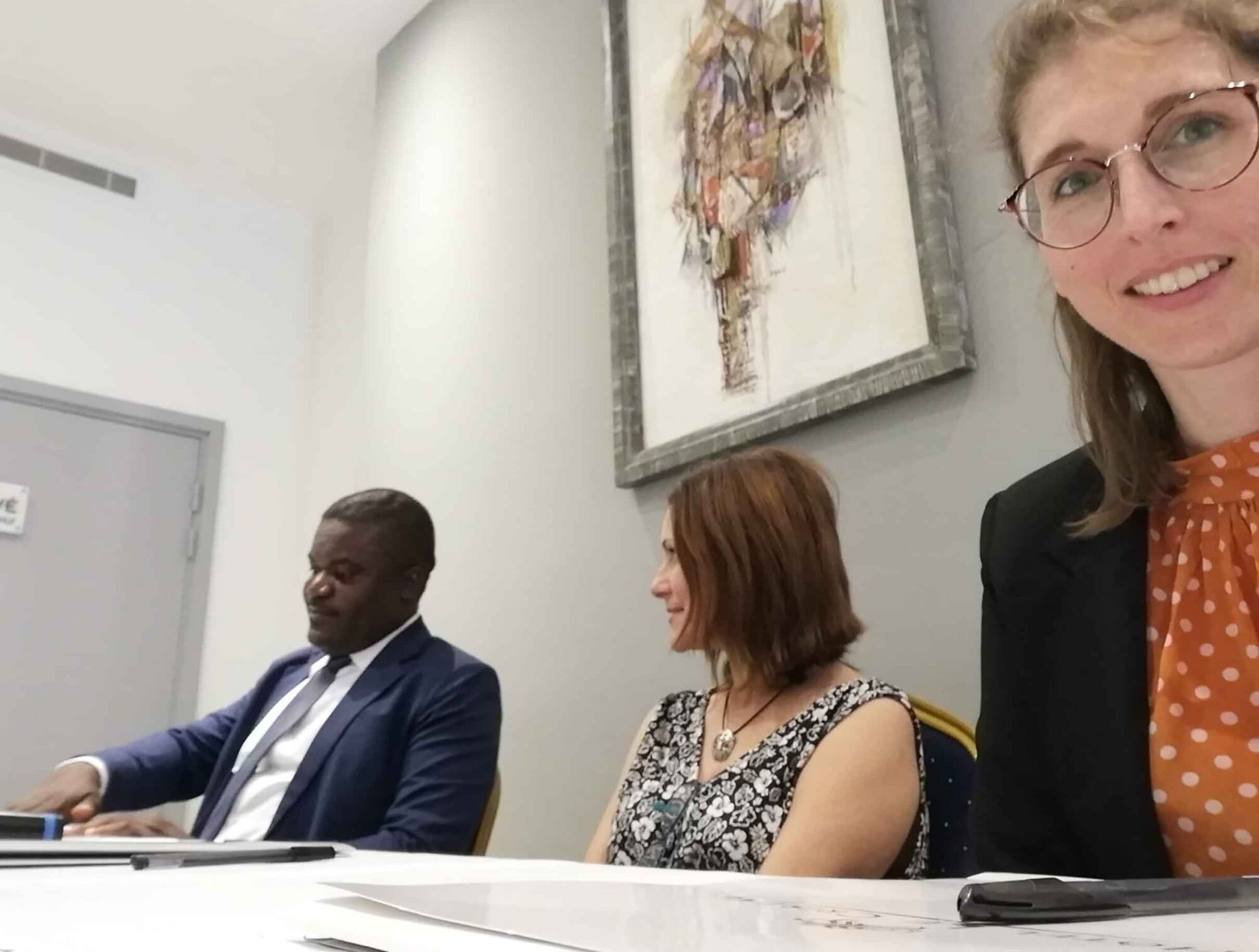
Kathryn Jeffery , CAFI consultant, Davy Onomori Mboumba, Vice-permanent secretary of Gabon’s National Climate Council and CfRN’s GHG Expert Eloïse Guidi, on-site, in Libreville, with participants at the Workshop.
